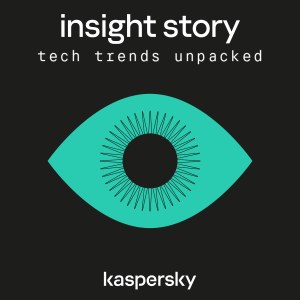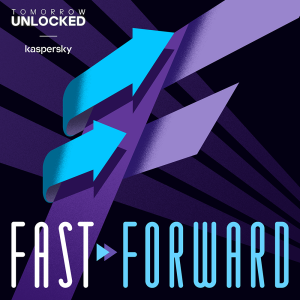Society for Nutrition Education and Behavior
Technology
(Recorded 11/14/17)
Speakers: Austin H. Childers, BA; Edda Cotto-Rivera, MPH CHES; and Jung Sun Lee, PhD RDN
Webinar sponsored by ASNNA in partnership with the SNEB Communications Division
The web presents an ever growing opportunity to provide cost-effective and cost-efficient SM nutrition education to a broad audience — but how do you ensure that information reaches your intended audience? This webinar will cover geo-fencing — the practice of restricting online content to particular geographic regions — using specific examples on Facebook and Google's advertising platforms to target SNAP-Ed eligible audiences.
Learning Objectives:
By the end of this webinar, participants will gain understanding on:
- How University of Georgia SNAP-Ed SM uses geo-targeting options for promoted content on Facebook and Google AdWords.
- How geo-fencing helps to achieve 100% SNAP-Ed eligibility in geo-targeted online audiences.
- The basic knowledge to apply similar practices to other nutrition education program targeted to low-income audiences.
Austin Childers holds a BA in Human Geography with concentrations in Agrofood Systems, Politics, and Uban Development, and New Media Certificate from the Grady College of Journalism and Mass Communication at the University of Georgia. In his current position, Childers 1) coordinates a statewide social marketing nutrition education intervention to promote healthy eating and physically active behaviors of low-income Georgians for the University of Georgia SNAP-Ed; 2) conducts social marketing research while utilizing emerging and traditional methods of communication to create and distribute nutrition education messages; and 3) provides technical marketing assistance to the University of Georgia SNAP-Ed team of nutrition and education professionals.
Dr. Lee holds a doctoral degree in Community Nutrition from Cornell University, and has received additional training in geriatrics and epidemiology at the University of Pittsburgh and University of North Carolina, Chapel Hill. Dr. Lee has training and background in community nutrition, epidemiology, and aging, with specific expertise in food insecurity research conducting evaluation studies on food and nutrition assistance programs, community-based nutrition interventions, and policy addressing nutrition-related health disparities in low-income population.
Ms. Cotto-Rivera holds a Masters degree in Public Health and a Bachelors of Science in Community Health Education. Ms. Cotto-Rivera's professional background includes community health education and outreach, chronic disease prevention education, and working with diverse audiences. Ms. Cotto-Rivera has extensively contributed to research projects related to health, nutrition, wellness with diverse underserved populations. As the University of Georgia SNAP-Ed Project Coordinator, she is responsible to collaborate with the Principle Investigator to provide guidance to both state staff and county based Extension staff for the design, implementation and evaluation of the program's direct nutrition education, social marketing ,and e-learning interventions.
More Episodes
#SNEB2019 Sneak Peek Pod: Inside the FNEE Pre-Conference Session
 2019-05-17
2019-05-17
Service-Learning: Getting Started
 2019-05-10
2019-05-10
In the Kitchen: Supporting the Development of Cooking Skills for Individuals with Autism
 2019-05-08
2019-05-08
Using Mendeley as a Citation Manager
 2019-05-07
2019-05-07
Journal Club 10: Food Choice Drivers in the Context of the Nutrition Transition in Delhi, India
 2019-05-01
2019-05-01
Sustainable Food Division Hot Topics Call
 2019-04-24
2019-04-24
Journal Club 9: Traditional Food Practices, Attitudes, and Beliefs in Urban Alaska Native Women Receiving WIC Assistance
 2019-04-24
2019-04-24
Journal Club 8: Food Sources for Homeless Youth: An Evaluation of Food Availability at a Homeless Youth Drop-In Center
 2019-04-17
2019-04-17
Navigating Successful Mentor-Mentee Relationships
 2019-04-12
2019-04-12
Digital Tech for Nutrition Education Roundup 2019
 2019-04-12
2019-04-12
Journal Club 7: Fruit and Vegetable Preferences and Practices May Hinder Participation in Community-Supported Agriculture Among Low-Income Rural Families
 2019-04-08
2019-04-08
Journal Club 6: Indicators of Readiness and Capacity for Implementation of Healthy Eating Strategies in Child Care Settings Serving Low-Income Children
 2019-04-03
2019-04-03
Journal Club 5: Barriers to Eating Traditional Foods Vary by Age Group in Ecuador With Biodiversity Loss as a Key Issue
 2019-03-28
2019-03-28
Journal Club 4: Nutrition Label Use and its Association With Dietary Quality Among Latinos: The Roles of Poverty and Acculturation
 2019-03-20
2019-03-20
Journal Club 3: Branding a School-Based Campaign Combining Healthy Eating and Eco-friendliness
 2019-03-13
2019-03-13
Using Mentored Peer Review of Journal Articles as a Strategy for Graduate Student Development
 2019-03-11
2019-03-11
Journal Club 2: Feasibility of Using a Community-Supported Agriculture Program to Increase Access to and Intake of Vegetables among Federally Qualified Health Center Patients
 2019-03-05
2019-03-05
Journal Club 1: The Importance of Including Environmental Sustainability in Dietary Guidance
 2019-02-26
2019-02-26
HTC: Position Paper on Sustainability
 2019-02-21
2019-02-21
Publication Ethics Resources for Editors
 2019-02-07
2019-02-07
Create your
podcast in
minutes
- Full-featured podcast site
- Unlimited storage and bandwidth
- Comprehensive podcast stats
- Distribute to Apple Podcasts, Spotify, and more
- Make money with your podcast
It is Free
You may also like

Insight Story: Tech Trends Unpacked


Zero-Shot


Fast Forward by Tomorrow Unlocked: Tech past, tech future


Lex Fridman Podcast


Elliot in the Morning


- Privacy Policy
- Cookie Policy
- Terms of Use
- Consent Preferences
- Copyright © 2015-2024 Podbean.com


 iOS
iOS Android
Android